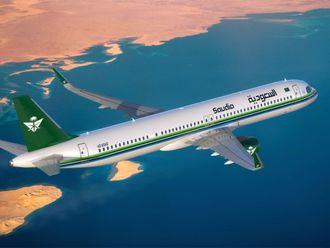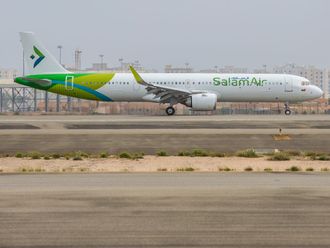One of the nice things about the air transport industry is it never stands still. It is not only aircraft that defy gravity moving around the globe. Airline logic and rhetoric also breaks a number of the rules of physics. The rules they do not break are the rules of economics.
You might argue the law of gravity is quite strict, unlike the laws of economics. However, it is JM Keynes that wrote the definitive rule of economics. ‘When circumstances change, I change my mind. What do you do?’ he once asked. It is a fair question, and valid for airline economics.
Circumstances are changing, and they are changing rapidly. You only need to look at the way the airline alliance map has changed in the last week or so to see that. Last month, if you believed the talk, the Gulf’s airlines all thought that alliances were of no value and that they were better off without them.
Since then three really fundamental things have happened. Emirates, with its deal with Qantas, has shaken the oneworld alliance; Qatar has joined the oneworld alliance; and Etihad has signed a deal with Air France-KLM, the key player in the skyteam alliance. Mr Keynes, please step forward.
As I have previously noted, we have alliances because we also have an outdated, restrictive set of rules that make it very hard for airlines to behave like normal companies. Alliances were developed to find ways for airlines to share operation costs and passengers.
But to do so is risky. From the passengers’ perspective, the airline with which your preferred airline is aligned needs to share a number of things. Commitment to service levels, for a start. Recognition of frequent flyer priorities is another big issue. Whether silver level frequent flyers get access to lounges is a big question when you are the silver level frequent flyer in question. Does the other airline have as many cashews in its mixed nuts?
It is hard to think of another service industry that outsources the very production of its service at the point of delivery the way that airline alliances do.
From the airlines’ perspective there are other issues that matter nearly as much. These include whether the airline can save money by outsourcing the flying and whether there is some way to ensure that there is no price competition between the carriers in the alliance.
Strictly, under the usual anti-trust, pro-competition laws, the fact that two airlines are in an alliance is not, of itself, reason for them not to be competitors. Take code sharing for example. Code sharing is when two (or more) airlines with rights to operate a particular route do so on an aircraft operated by only one of those airlines. Seats sold on a code share flight are sold by each airline, independent of the other, so should be sold competitively. Two passengers sitting side by side may have paid wildly different fares.
To stop that state of affairs the airlines seek ‘metal neutral’ alliances, with cooperative pricing, done once for all. These are alliances with anti-trust immunity. It is not for nothing that Tim Clark (CEO) from Emirates has called alliances “a fraud on the passenger”. It is worth noting that with normal commercial rules, these complex structures would not be necessary.
So what has happened? Let’s look first at Emirates-Qantas. That deal means that the oneworld offering involving BA and Qantas between Europe and Australasia is now dead. For Qantas, it has been replaced by linking with Emirates to offer services from Australia to the entire EK network.
Oneworld moved quickly to announce Qatar Airways’ joining. That gives it competing services to match those of Qantas-Emirates. Speaking in Geneva last week, Keith Williams, the CEO of BA said that Qantas was still “very much part of oneworld”. What that Delphic comment meant only time will tell.
Etihad moving alongside skyteam is also interesting. Etihad has been clear in its intention to gather unto itself as many passengers as it can. Its announcement of a deal with Garuda is also consistent with both parts of this narrative. Garuda can deliver passengers. Skyteam notes Garuda is a ‘future skyteam member’.
Skyteam is strong in China and in Latin America, information Etihad frequent fliers might find interesting when planning their next holiday.
It is the frequent flier schemes that ultimately provide the glue for alliances. You will note that the first thing mentioned in announcing an airline’s joining of an alliance is that the frequent flier scheme is to be merged, aligned or otherwise tinkered with. Airlines know that they cannot afford to upset their best, most frequent, passengers. They also know that alliances are not as good as the alternative, but until we can change that, we are stuck with what we have.
Andrew Charlton is managing director of the Europe-based strategic advisory, government and public affairs firm, Aviation Advocacy










